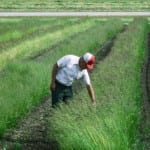It is now expected that part of the reductions in subsidized coverage for growers will be repealed. Back in April, Republicans in Congress formed a new agreement in order to move ahead on a plan that was designed to create a savings of $5 trillion over the next ten years, and reductions in crop insurance subsidies were a part of this effort to balance the budget at the end of that time. However, as time has passed and the practical side of these insurance subsidy decreases plays out, it may…
Read MoreTag: crop insurance subsidies
Crop insurance subsidy limits applauded by reformers
Those in favor or restrictions of this nature gave their praise to a U.S. House of Representatives vote. Reformers for the crop insurance subsidy gave their approval to a vote that was held by the U.S. House of Representatives that would require the wealthier growers to have to pay more in order to take part in the federally subsidized program. This is also the first time that an eligibility limit has been placed on this highly expensive program. The federal crop insurance program is already costing the country $9 billion…
Read MoreCrop insurance in Kansas farm bill pleases farmers
Though growers are pleased that the program continues to exist, they are wary of cuts to direct subsidies. Farmers in Kansas are thrilled that their crop insurance program has been maintained as a part of a scaled down farm bill that has been passed by the U.S. House, but they are still leery as it doesn’t look as though the opportunity that it will provide will be quite as lucrative as what it used to be. They are still watching to see which elements of it will make it into…
Read MoreCrop insurance push made for conservation requirements
Rep. Mike Thompson wants the subsidized coverage to require compliance for eligibility. Among the differences between the current federally subsidized crop insurance program and the older systems of farmer subsidies is that it has detached itself from having to comply with conservation in order to be eligible. Older programs all required that farmers preserve wetlands, soils, wildlife habitat, etc, in exchange for the assistance. However, since 1996, farmers no longer had to meet the conservation minimum USDA requirement in order to be able to receive crop insurance subsidies, even at…
Read MoreCrop insurance subsidy could come to an end for tobacco farmers
Growers of these plants in Kentucky are strongly opposed to this new proposal to end their programs. An amendment to the 2013 Farm Bill was proposed, this week, by Senator Dianne Feinstein (D-California) and Senator John McCain (R-Arizona), which would eliminate eight of the USDA tobacco crop insurance programs. This has caused concern to the Council for Burley Tobacco, which has asked farmers to contact their Senators. The council notified tobacco farmers of the changes that have been proposed for the crop insurance program and have requested that they contact…
Read More




